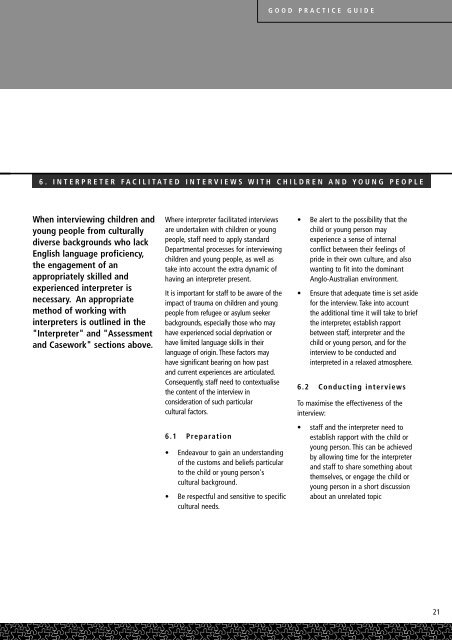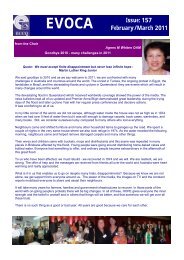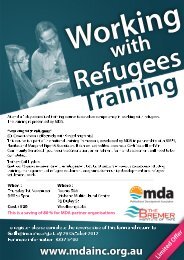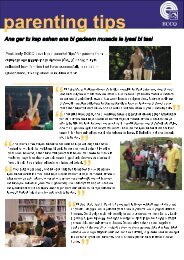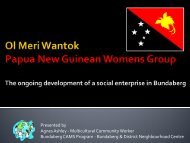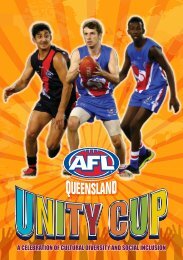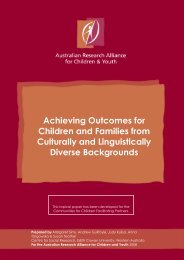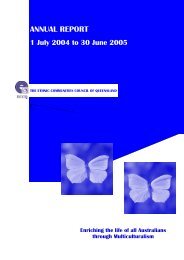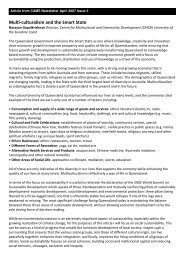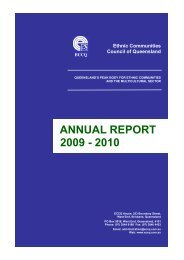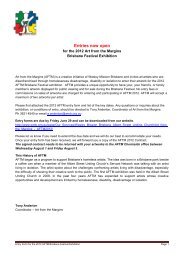Good Practice Guide
CALD Good practice guide
CALD Good practice guide
Create successful ePaper yourself
Turn your PDF publications into a flip-book with our unique Google optimized e-Paper software.
GOOD PRACTICE GUIDE<br />
6. INTERPRETER FACILITATED INTERVIEWS WITH CHILDREN AND YOUNG PEOPLE<br />
When interviewing children and<br />
young people from culturally<br />
diverse backgrounds who lack<br />
English language proficiency,<br />
the engagement of an<br />
appropriately skilled and<br />
experienced interpreter is<br />
necessary. An appropriate<br />
method of working with<br />
interpreters is outlined in the<br />
"Interpreter" and "Assessment<br />
and Casework" sections above.<br />
Where interpreter facilitated interviews<br />
are undertaken with children or young<br />
people, staff need to apply standard<br />
Departmental processes for interviewing<br />
children and young people, as well as<br />
take into account the extra dynamic of<br />
having an interpreter present.<br />
It is important for staff to be aware of the<br />
impact of trauma on children and young<br />
people from refugee or asylum seeker<br />
backgrounds, especially those who may<br />
have experienced social deprivation or<br />
have limited language skills in their<br />
language of origin. These factors may<br />
have significant bearing on how past<br />
and current experiences are articulated.<br />
Consequently, staff need to contextualise<br />
the content of the interview in<br />
consideration of such particular<br />
cultural factors.<br />
6.1 Preparation<br />
• Endeavour to gain an understanding<br />
of the customs and beliefs particular<br />
to the child or young person's<br />
cultural background.<br />
• Be respectful and sensitive to specific<br />
cultural needs.<br />
• Be alert to the possibility that the<br />
child or young person may<br />
experience a sense of internal<br />
conflict between their feelings of<br />
pride in their own culture, and also<br />
wanting to fit into the dominant<br />
Anglo-Australian environment.<br />
• Ensure that adequate time is set aside<br />
for the interview. Take into account<br />
the additional time it will take to brief<br />
the interpreter, establish rapport<br />
between staff, interpreter and the<br />
child or young person, and for the<br />
interview to be conducted and<br />
interpreted in a relaxed atmosphere.<br />
6.2 Conducting interviews<br />
To maximise the effectiveness of the<br />
interview:<br />
• staff and the interpreter need to<br />
establish rapport with the child or<br />
young person. This can be achieved<br />
by allowing time for the interpreter<br />
and staff to share something about<br />
themselves, or engage the child or<br />
young person in a short discussion<br />
about an unrelated topic<br />
21


